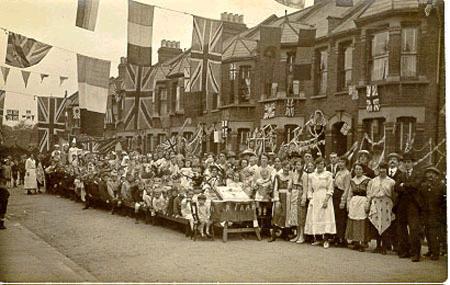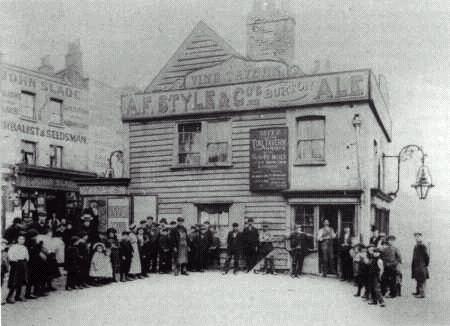
|
East London
|
|||||||
The other two nights of the week Mr. Philipps spent in visiting at their headquarters some of the 48 troops of boy scouts in the East London District (i.e. Hackney, Stepney and Poplar) The work in this connection consisted in inspecting the boys, giving them instruction where necessary, advising the scoutmasters, and in generally working to maintain a high standard of efficiency in the first-aid, life-saving, fire-drill, cooking and other practised by the boy scouts. As Secretary for Wales of the Boys' Country Work Society, Mr. Philipps had daily much writing work to do apart from his work in the evenings in connection with the scouts or Workingmen's Club. The object of the Boys' Country Work Society was to send to well-recommended farms in England and in Wales, lads of good character and decent physique, who wished either to train for emigration or to stay on the land as farmlabourers. These were already eighty of these boys in South Wales. Mr. Philipps was also associated with the "Waifs and Strays" and with "Dr. Barnardo's Homes." On several Sunday evenings he addressed over two hundred Barnardo boys at their big home in Stepney Causeway. He also did work in connection with boy's clubs, and in his spare time visited the London Hospital and the Bethnal Green and Hackney infirmaries. Every Sunday afternoon when in London he assisted at a big tea given in Stepney by the widow of the late Dr. Barnardo for 1,400 of the poorest children in England. These children were between the ages of twelve and two months, and were fed six or seven hundred at a time. They were a pathetic sight as far the majority of them were clad in rags. Perhaps one of Mr. Philipps's greatest pleasures was the work in connection with the Kent hop-picking season. Every summer during the few weeks that the sunny country of Kent was over-run with hundreds of poor Londoners imported with their families to pick up the hops. A number of young university men went down to the hop-fields to live under canvas with the pickers to help them with their work, to cheer them by means of concerts and lantern lectures in their leisure, and to doctor and help them in their need. One year Mr. Philipps spent a week under canvas at Paddock Wood, and in other year a fortnight in a tent at East Fawleigh. As can be imagined all this work not only had the effect of keeping Mr. Philipps right away from the pleasures and luxuries of West London, (he was in fact seldom seen there except that whenever possible he paid a short daily visit to his parents, of whom he was very fond,) but it also prevented his being able to take the city's man's much looked-forward-to week-end holiday. However, Mr. Philipps was always a singularly happy and contented person and was devotedly attached to the East London life, which he rarely leaved for a day except when he could be of some use amongst his native hills of Cymru.
The universities, colleges and public schools had run missions in the area (Clement Attlee, later Prime Minister, worked at the Haileybury Mission which was a great formative influence on his life). The churches and the Jewish organisations did heroic work. Into the maelstrom in the last years of this century's first decade came the scouts. In 1912 there arrived on the scene as Assistant Commissioner for East and North East London one of the most remarkable men ever worn scout uniform, Roland Philipps. |

